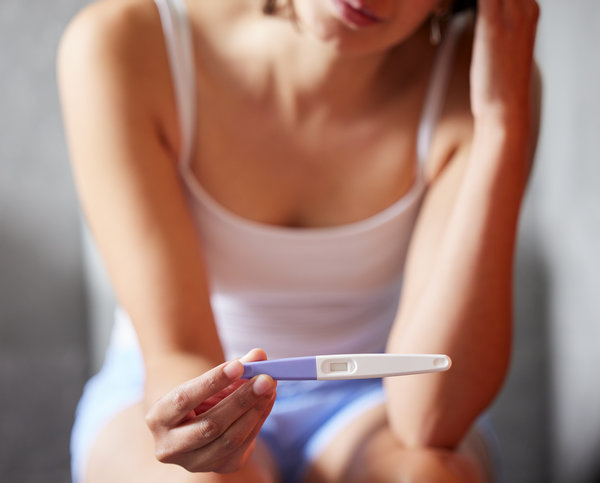Infertility, Causes of Infertility, Treatment
What is infertility?
Infertility is the inability of a couple to conceive and carry a pregnancy to term, i.e. to have a child, after one year of trying (regular sexual intercourse).
Infertility should not be confused with sterility, which is the absolute biological inability to reproduce (for example, a woman who has had her uterus and ovaries removed is obviously unable to reproduce) or a man with azoospermia (no sperm).
According to the World Health Organisation (WHO) definition of infertility, it is a health disorder that requires treatment. Procreation and family building are considered a right of every human being.

Free Online Consultation with Dr Thanos Paraschos and his team
Is infertility only a woman's problem?
No, infertility is not always a woman's problem, it can affect both men and women:
- About a third of infertility cases are caused by female problems.
- Another third of fertility problems are caused by make problems.
- The remaining cases are caused by a mixture of male and female problems, or by unknown problems, known as unexplained infertility.
How common is infertility?
According to various epidemiological studies and WHO estimates, about 8-12% of couples of reproductive age experience some form of difficulty in trying to have children. Worldwide, it is estimated that there are 50-80 million infertile couples, with about 2 million new couples being added every year, and the trend is increasing.
In Greece, there are still no complete epidemiological studies on infertility, but it is estimated that about 300,000 couples have difficulty having children.
The prevalence of infertility can vary from region to region and from population to population. It is important to recognise that there is no specific 'profile' of the infertile couple, male or female. Infertility is a complex and fluctuating condition: the same individual or couple may experience long periods of inability to conceive, and this inability may occur or end without warning. Most of the time infertility has no specific symptoms (e.g. pain, fever, discomfort) and so we do not notice it.
Normal chance of conception
The average normal chance of conception and pregnancy for a fertile couple with a normal sex life is no more than 20% per menstrual cycle. This rate is highest when the woman is young (under 25), remains about the same until the age of 30, and then gradually decreases until the age of 40. At older ages, the rate of normal conception is very low, in the order of 5% or less. About 50% of normally fertile couples achieve pregnancy in the first year of trying, and 20-35% of these couples achieve pregnancy in the second year of trying. The remaining 15% are "infertile" couples.
Using mathematical models, it has been found that the cumulative probability of conception for a moderately infertile couple approaches 95% after five years, while for a severely infertile couple it reaches up to 45% after five years. In fact, many couples who have repeated IVF failures and decide to stop trying go on to have children on their own, when they "don't expect it".
Therefore, the typical 12-month time limit should not be taken as an absolute: if a couple has the time and patience to wait, pregnancy will happen, even after several months. Obviously, this is not the case if one of the couple has confirmed sterility. Consequently, the logical response is to assess fertility after one year of regular unprotected intercourse and, if no factor of absolute infertility is identified, the couple should wait to avoid unnecessary medical treatment in order to have children.
Causes of infertility in both men and women
The causes of infertility should be investigated in both men and women. In the majority of cases, a cause can be found after thorough diagnostic testing, but in a minority of couples, infertility remains unexplained.
Broadly speaking, infertility is caused either by inflammation of the genital tract or by hormonal imbalances. Both cause specific disorders in men and women.
In Greece, it is believed that the increasing number of abortions, as well as various infections of the genital tract that are not treated in a timely and comprehensive manner, cause chronic inflammation and eventually lead to infertility.
Symptoms of infertility
In men, the only symptom is usually that the partner/spouse cannot get pregnant. Other symptoms to look out for include erectile dysfunction, problems with ejaculation, hormonal imbalances, testicular changes and obesity.
Read more about male fertility.
For women, the situation is more complicated and the main symptoms of infertility are:
- Irregular periods or no periods at all
- Very painful periods
- Endometriosis
- Pelvic inflammatory disease
- More than one miscarriage
An irregular cycle in a woman can contribute to infertility because it means that she may not ovulate regularly. Ovulation is when the ovary releases an egg. Irregular ovulation can be caused by many problems, including polycystic ovary syndrome (PCOS), obesity, low body weight and thyroid problems.
Free Online Consultation with Dr Thanos Paraschos and his team
Diagnosis
A clear diagnosis must be made before any treatment can be given. The diagnosis of infertility is made by a qualified doctor (gynaecologist, urologist, andrologist or endocrinologist, as appropriate). In addition to a clinical examination and a detailed medical history of the couple (or the individual man or woman), diagnostic tests may include:
- microbiological tests (usually a culture of semen and vaginal fluid)
- Laboratory tests of blood, semen and cervical mucus
- Special imaging tests (ultrasound of the abdomen or scrotum, hysterosalpingography, CT or MRI)
- colposcopy, examination of the penis
- Surgical procedures (hysteroscopy, laparoscopy)
- Other special tests and analyses (immunological, semen, etc.)
We reiterate that a correct diagnosis is extremely important as it guides the choice of treatment strategy. There is now an international trend towards individualised treatment, depending on the specific characteristics of each couple. It is therefore useful for couples to be referred to organised fertility centres, either on the recommendation of their general practitioner or the specialist with whom they had their first contact, or even directly.
In this way, the couple will not be obliged to undergo unnecessary or multiple examinations and fragmentary or incomplete diagnostic procedures, and the waiting time between the detection of the problem and the formulation of a treatment plan will be reduced.
Treatment
In order to choose the most appropriate treatment strategy, all the information must be carefully weighed and the couple, with the help of the treatment team, must be guided to a sober and clear decision.
Factors such as the woman's age and the couple's financial resources must be taken into serious consideration, as diagnosis and treatment of infertility can sometimes be both time consuming and expensive.
Depending on the diagnosis, different treatments are available. The simplest are:
- Drugs to fight infections
- Drugs to regulate or stimulate ovarian or testicular function
- Surgery to treat anatomical problems of the reproductive system or endometriosis,
- a combination of medical and surgical treatment, if necessary
If these methods do not work, or if their use is unnecessary, more complex methods are required, such as various assisted reproduction methods (in-vitro fertilisation).
Solutions from EmBIO Fertility Centre
EmBIO is one of the largest IVF and gynaecology centres in Europe. At the EmBIO Fertility Centre, our highly qualified medical and scientific staff, led by Dr. Thanos Paraschos, apply all therapeutic techniques, from the most innovative to the well-established conventional assisted reproduction methods, using our state-of-the-art technological equipment, until we achieve our common goal: to bring the children we want into the world..
Every year we successfully treat more than 2,000 cases of infertility. And fortunately for all of us, even after all these years, we still don't see you as just a case or a number. We make sure we understand the unique needs of each couple who comes to us. And you understand from the first moment that your problem will find a solution. And it does. At Embio, we have the highest success rate in IVF.
EmBIO achieves the desired result at a rate of 78% or more, regardless of the age of the mother-to-be. If the woman is approaching 50 years of age, we secure donor eggs from young women using legal, fully vetted procedures.
In all cases, we use pre-implantation diagnostics to ensure that your child is born healthy and, if necessary, to check its sex.
EmBIO also offers the possibility of IVF, in complete confidentiality, to single women who wish to create a single-parent family.
Mothers or couples who have become parents thanks to our joint efforts at EmBIO have a special story to tell. Take a look at some of these patient stories and contact us for a free online consultation.

We have been bringing the dream of motherhood to life since 1996!
Patients from every corner of Greece and many different countries come to EmBIO Fertility Centre in Athens, known for its great success in IVF treatments and the humane approach it implements to the needs of each patient.
By constantly following developments in assisted reproduction, our team can offer you top results in any infertility problem, regardless of your age.

